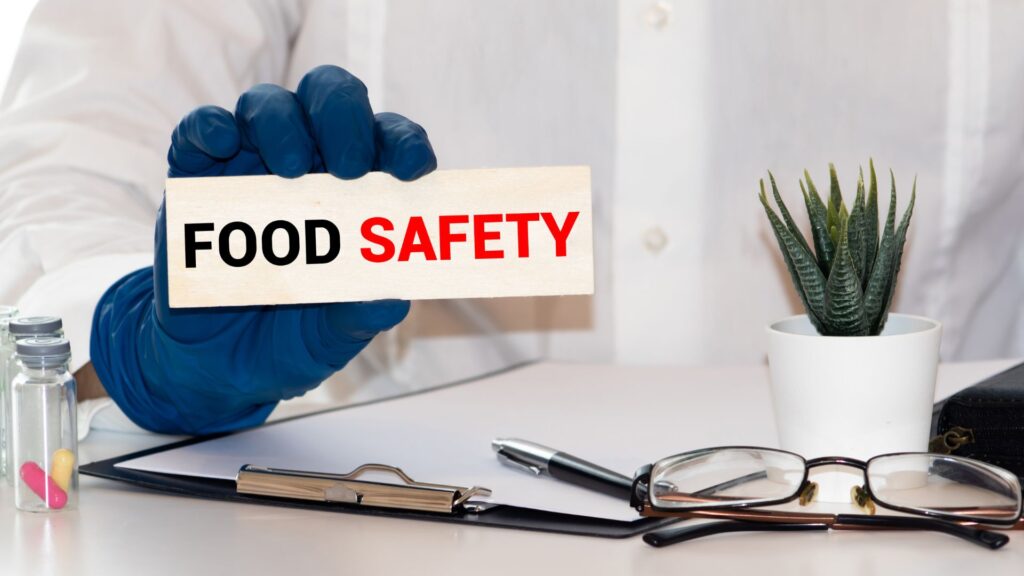What is the best way to prevent poor food safety ?

Conquer Your Kitchen: A Guide to Prevent Poor Food Safety
Foodborne illness, also known as food poisoning, is a miserable experience. It can cause stomach cramps, nausea, vomiting, and diarrhea, leaving you feeling weak and uncomfortable. The culprit? Harmful bacteria, viruses, or parasites that can contaminate food at any stage, from farm to fork. But fear not! By adopting safe food handling practices, you can significantly reduce the risk of foodborne illness and enjoy your meals with peace of mind. This comprehensive guide explores the best practices for preventing poor food safety in your kitchen.
The Four Pillars of Food Safety: Clean, Separate, Cook, Chill
The mantra for preventing foodborne illness boils down to four key principles: Clean, Separate, Cook, and Chill. Let’s delve into each one:
-
Clean:
- Wash Your Hands: This is the single most effective way to prevent the spread of bacteria. Wash your hands thoroughly with warm, soapy water for at least 20 seconds before and after handling food, especially after using the restroom, touching your face, or handling raw meat, poultry, or seafood.
- Wash Fruits and Vegetables: Rinse produce under running water to remove dirt, debris, and potential contaminants. Scrub firm fruits and vegetables with a clean brush, especially if they have an inedible rind.
- Sanitize Surfaces: Clean and sanitize countertops, cutting boards, and utensils with hot, soapy water after each use. Consider using a disinfectant solution appropriate for food contact surfaces.
-
Separate:
- Prevent Cross-Contamination: This refers to the transfer of harmful bacteria from one food to another. To avoid this:
- Always use separate cutting boards and utensils for raw meat, poultry, and seafood to prevent them from contaminating cooked or ready-to-eat foods.
- Store raw meat, poultry, and seafood in sealed containers on the bottom shelf of your refrigerator to prevent their juices from dripping onto other foods.
- Never place cooked food back on the same plate that held raw food.
- Prevent Cross-Contamination: This refers to the transfer of harmful bacteria from one food to another. To avoid this:
-
Cook:
- Cook Food to Safe Internal Temperatures: Using a food thermometer is crucial to ensure food reaches an internal temperature high enough to kill harmful bacteria. The USDA provides a handy chart listing safe minimum internal temperatures for different types of meat, poultry, and fish https://www.fsis.usda.gov/food-safety/safe-food-handling-and-preparation/food-safety-basics/safe-temperature-chart.
-
Chill:
- Refrigerate Promptly: Perishable foods left at room temperature for more than two hours are susceptible to bacterial growth. Refrigerate leftovers within two hours of cooking.
- Defrost Safely: Never thaw food at room temperature. Thaw frozen food in the refrigerator, cold water bath, or microwave using the defrost setting.
- Maintain Proper Fridge Temperature: Keep your refrigerator at 40°F (4°C) or below to slow bacterial growth. Invest in a fridge thermometer to monitor the temperature regularly.
Beyond the Basics: Additional Food Safety Tips
Here are some additional practices to fortify your food safety defenses:
- Shop Smart: Choose fresh, undamaged produce and properly packaged meats. Check the “use by” or “sell by” dates on products and avoid buying expired items.
- Beware of Cross-Contamination at the Grocery Store: Use separate bags for raw meat, poultry, and seafood to prevent them from contaminating other groceries.
- Clean Up Spills Immediately: Clean and disinfect surfaces that come into contact with raw meat, poultry, or seafood spills promptly.
- Handle Leftovers with Care: Reheat leftovers to an internal temperature of 165°F (74°C) and only reheat them once. Discard leftovers that have been sitting at room temperature for more than two hours.
- Beware of Risky Practices: Avoid practices like thawing food on the counter, marinating raw meat at room temperature, or partially cooking meats and finishing them later.
Keeping Food Safe for Special Diets and Situations
Certain situations require extra vigilance regarding food safety:
- Pregnant Women, Infants, and Young Children: These populations are more susceptible to foodborne illness. Be extra cautious about food safety practices when preparing meals for them.
- People with Weakened Immune Systems: Individuals with compromised immune systems are also at higher risk. Consult a healthcare professional for specific food safety guidance.
- Traveling: Food safety becomes even more critical when traveling, especially to areas with different hygiene standards. Be cautious about consuming street food or uncooked vegetables.



